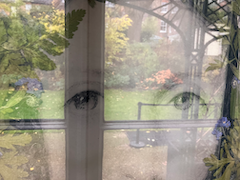
Warning: I wrote this article without any use of an artificial Large Language Model — except my own.
A favourable ocean wind sent me Esther Perel’s pre-startup counselling questions. With a fairly recent startup failure and another botched proposal still fresh in memory, I’m happy to take up the challenge. A bit reckless maybe, but what the heck. You only live twice.
— To ask —
Have you always known what you wanted in life?
Not at all, I’m more a flâneur than a planner. I observe what’s going on around me, and let me guide by circumstance, opportunity and intuition. This counterbalances the strong sense of duty that my upbringing has imbued me with. Any personal dilemma tends to originate from the conflict between these opposing forces.
When you’re faced with a problem, do you ask for help or are you more inclined to try to do everything on your own?
The latter, unless it’s a medical problem. By nature I don’t like to rely on someone else’s goodwill too much. Freedom, independence and self-determination are dear to me. Whether illusory or not.
There’s also a third option, by the way: ignore the problem and procrastinate. Not praiseworthy, but realistic.
What is the hardest thing you’ve ever had to ask for?
To myself and to others: to accept my many imperfections.
— To take —
What do you do when you identify something that you think you need or deserve?
First, (over)think whether that is actually the case. When I’m finally convinced, I will take action and go after it. Usually within, sometimes outside the bounds of the abovementioned personal dilemmas.
Contradiction: the deeper the need, the faster the insight. But the slower the action.
How do you experience taking up time, space, initiative, and sharing ideas?
As a means to clear my mind, and to provoke other people’s reactions. I’m quite fond of engaging in conversations with people half my age, to try and understand how the world is changing. And how it isn’t.
Though somewhat reserved, I do like standing on a proverbial stage every now and then. But rather in a cosy club with a friendly audience I know, than in a huge stadium with strangers. Quality over quantity.
Then again, I don’t track who reads this blog. Which makes for a double delight when someone tells me they do.
Describe a time when you dealt with someone who hogged the mic and grabbed all the attention.
In professional life, I look upon grandstanders with a mix of amusement, pity and — if they’re really loud — slight disdain. Except when they live up to the expectations they portray about themselves, which is rare. Then I don’t mind too much.
My favourite counter-strategy to bullshitters is to let them speak and fail. Then to tacitly prove them wrong, not in words, but in deeds. Which can take time, and go totally unnoticed.
Finding a credible balance between promise and delivery, one could say, is the essence of any durable business. I prefer to underpromise and overdeliver. But I understand that’s not how life and marketing always work. Hence some tolerance for loudness.
— To receive —
How do you deal with surprises?
Good surprises: I thankfully accept them.
Bad surprises: I let them sink in for a short while, define my position, act accordingly and move on. Preferably in silence, without making a fuss.
Really bad surprises can affect me for life. Letting go is still a work in progress.
Tell me about the last time someone helped you. How did you feel?
I once lost conscience in a spectacular and messy way on an intercontinental flight, and was taken care of by a flight attendant. I felt sick, helpless and totally embarrassed. Then again, it was a life lesson, and still a great story to tell.
In order to pay forward for the service I received, I recently learnt first aid, including CPR. One day I hope — and hope not — to be able to help someone out.
Tell me about a time you asked for something important and received it. What was it? How did you feel?
In 2014 I asked my employer and family for a 3-month sabbatical, away from everyone and everything. It felt difficult, because in earnest, it was more an announcement than a request. But a necessary one. So I went for it.
— To give —
Do you give in response to other people’s requests or do you tend to give it freely?
It depends. If I know the requester personally or via an acquantaince, I’m happy to help. Chances increase if the person is young, willing to be helped, and — important! — has done the necessary homework first. Lazy freeloaders stand little chance.
Very occasionally, people make such an impression on me that I reach out spontaneously to offer help. This has already led to interesting mentoring opportunities.
In times of abundance, what do you do with your resources?
I let them grow and save them for later. And then spend — or rather, invest — them on well-chosen initiatives like a study or journey abroad. Most of the time, I live a bit below my means. Until I feel the need to escape day-to-day life.
As I get a bit older and the average investment horizon a bit shorter, sizeable personal investment opportunities might present themselves less frequently. So I expect the save-and-invest cycles to become shorter and shorter. Until the resources eventually run out — who knows.
Then again, I haven’t exactly kicked the bucket yet.
Either way, leaving this life with too many savings on the bank and too few lived experiences sounds like the culmination of stupidity. So timing is of essence.
In a professional setting, I have worked in a startup with too much money in the bank — leading to bloated teams and ridiculously high monthly cloud computing bills. It didn’t end well.
What about in times of scarcity?
The fewer resources, the more they’re worth. So you’d better spend them wisely.
As a student, I had enough, but lived frugally. I preferred my record collection to my wardrobe. Still enjoying those records, by the way! The clothes and shoes have long gone.
Professionally, I have also worked in a(nother) startup where money was scarce. Unfortunately it was partially spent on frivolities like coaching sessions, website redesigns and marketing campaigns, even before the product was built. Again, it didn’t end well.
— To acknowledge —
Is there someone whom you feel owes you an apology? Is there someone to whom you own an apology?
Anyone who betrayed my trust. Anyone whose trust I betrayed, or whose messages I did not reply to.
When was the last time you made a mistake? How do you acknowledge your fallibility?
It’s not hard to make a mistake. It’s a bit harder to realize you’re making a mistake, because it takes time. It’s even harder to acknowledge to others that you’ve made a mistake, because it requires courage and humility.
Some of my mistakes are not fit for publication; some are.
Have you ever changed your mind?
Never. Well, maybe.
When I can’t change my mind, I can at least try to change my behaviour and actions. In certain situations, pragmatism trumps principles. But not too often.
— To refuse —
Have you ever ended a friendship?
I like to think I didn’t, but I’m sure I did, albeit unknowingly and hopefully unwillingly.
Despite having strong opinions every now and then, I’m generally conflict averse. Which is not very consistent, I know.
When I feel I’ve been treated badly, I usually suffer in silence first. I don’t like drama.
Think of a time when you wanted to give up. Which part of you prevailed?
In a professional setting, when the going gets tough, I try to take a step back and assess the situation as objectively as possible. If this leads to a situation of non-belief in the common cause, so be it. As a company director, it can actually be dangerous and even illegal to hope for a deus ex machina for too long.
A lot depends on how much one is financially and emotionally at stake. Sometimes you just have to cut your losses.
In terms of risk, I will never, ever want to go beyond the limited liability that I have accepted at the onset of the venture. I don’t mind risk, but only up to the self-chosen point that is within my control.
Tell me about the last time you said "no".
I recently went through a dating process for a startup. The venture looked promising, until equity percentages came on the table. The water turned out too deep, so I pulled out. It was painful because of the misunderstandings involved.
— To play —
What would you do if you had a different career?
I’d be a professional diplomat, an amateur poet, and — to keep life somewhat exciting — a double agent.
What do you need more: security or adventure?
When I have more than enough (financial) security — like now — I need more adventure.
When I had less (financial) security — like when our startup was shut down — I went for more security by taking on a long-running consulting assignment.
So it alternates, really.
What is your idea of a perfect day?
An autumn stroll through a city or a park, alone or in good company. The unsolicited smile of a beautiful lady passing by. A table at a Paris bistrot — New York will do as well — from where to observe the world. A tête-à-tête with a perfect stranger or an old friend in a speakeasy, who will have me speak easy.
In short: the absence of ugliness, and the illusion of conversation and connection.
Next up: Proust’s questionnaire.
